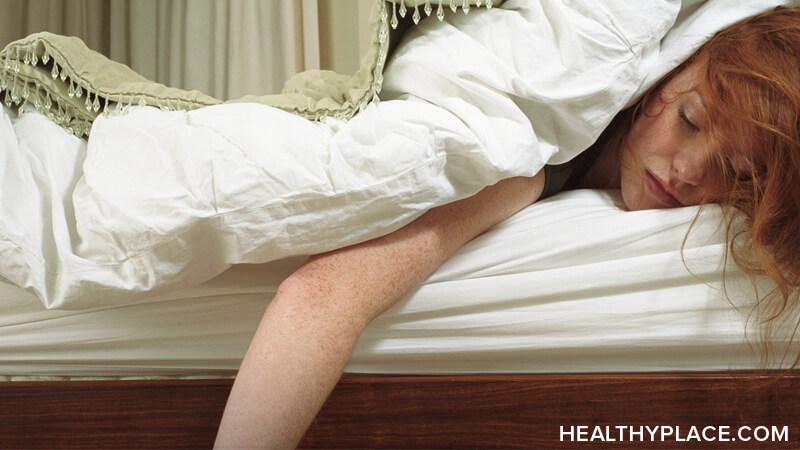Don't Skimp on Sleep to Manage Bipolar

Healthy sleep habits are an essential part of bipolar disorder management. They are also some of the most difficult habits to develop. Proper sleep habits are critical for physical and mental health, but the highs and lows that come with bipolar disorder can make it exceptionally difficult to wind down at the end of the day. Unhealthy sleep patterns can lead to a vicious cycle of mood instability that wreaks havoc in every facet of our lives -- work performance not least among them.
Changing My Sleep Patterns for Bipolar Management
Nighttime is when I am most susceptible to hypomania. Before my diagnosis, I would often wake up as late as 11:00 or 12:00 in the morning and wouldn't fall asleep until three or four the following morning. I thought that this was just "natural" for me, as I had always been a night owl, even from my early childhood. The problem was that I didn't run well on "normal" time, which made things like getting to work on time and keeping appointments difficult. My work life and relationships suffered, as did my moods.
It wasn't until after my diagnosis that I learned just how important keeping a consistent sleep-wake cycle is for proper bipolar management. It was hard to adjust in the beginning, but eventually, I came up with a daily rhythm that works well for me. (I would never have guessed that I would one day become one of those mysterious morning people I'd heard so much about.)
While I still experience bipolar insomnia on occasion, it's nothing like how it was before I started paying attention to my sleep routine. I have had to make some sacrifices in the name of sleep -- under no circumstances can I work evening or overnight shifts, which puts me out of the running for certain jobs, and I miss the nights when I would stay up late with my partner or friends -- but it's worth keeping my disease under control so I can better pursue my career aspirations.
How to (Not) Skimp on Sleep and Manage Bipolar Better
If you want to improve your sleep habits so you can live and work better with bipolar disorder, the biggest piece of advice I can give you is this: do not buy into the lie that exhaustion is good. We live in a society that glorifies stress and burnout, but you should never let anyone make you feel guilty for daring to get an adequate amount of sleep.
Sleep is a biological need for all living things, and it is critical for living (and working) well with bipolar disorder. Reclaiming your sleep is one of the most important ways you can advocate for yourself in the modern workplace.
In your day-to-day life, there are several steps you can take to build healthy sleep habits.
- As much as possible, stick to a consistent bedtime routine and sleep schedule every night (yes, even on weekends).
- Create a hard cut-off time for stopping work, and avoid taking work into your bedroom.
- Turn off phones and electronics at least an hour before bed, and avoid reading troubling or upsetting news near bedtime.
- Do your best to make sure that your bedroom is a quiet, restful place to make it easier for your body and brain to fall into "sleep mode."
While the ongoing COVID-19 pandemic may make some of these adjustments challenging, the trade-off is worth it: better sleep and improved bipolar symptoms.
We are often taught that sleep is an inconvenience that we should forego for the sake of "productivity," but this is simply untrue. You deserve adequate rest. Your work -- and your bipolar brain -- will thank you.
Have you found it important to develop healthy sleep habits to manage bipolar disorder? Share your story in the comments.
APA Reference
Rose, N.
(2020, September 30). Don't Skimp on Sleep to Manage Bipolar , HealthyPlace. Retrieved
on 2026, March 5 from https://www.healthyplace.com/blogs/workandbipolarordepression/2020/9/dont-skimp-on-sleep-to-manage-bipolar